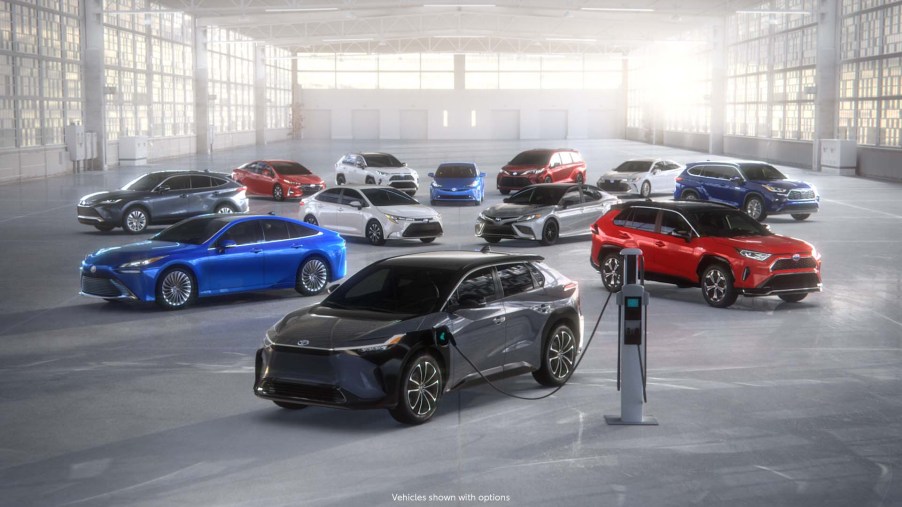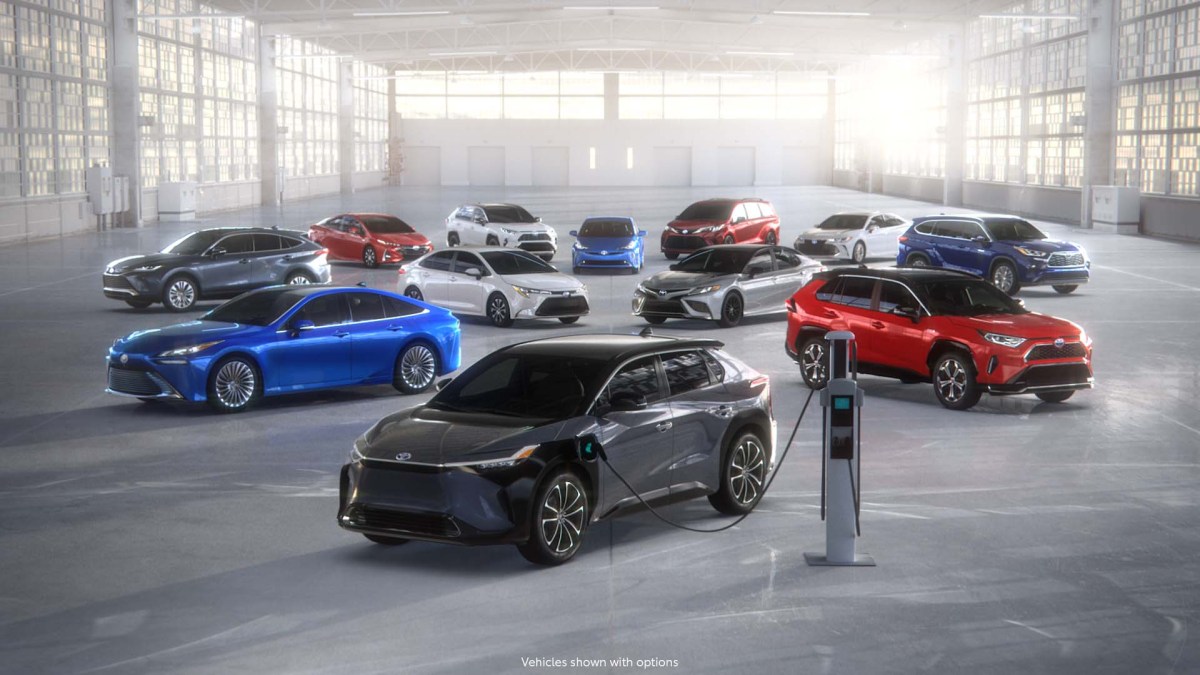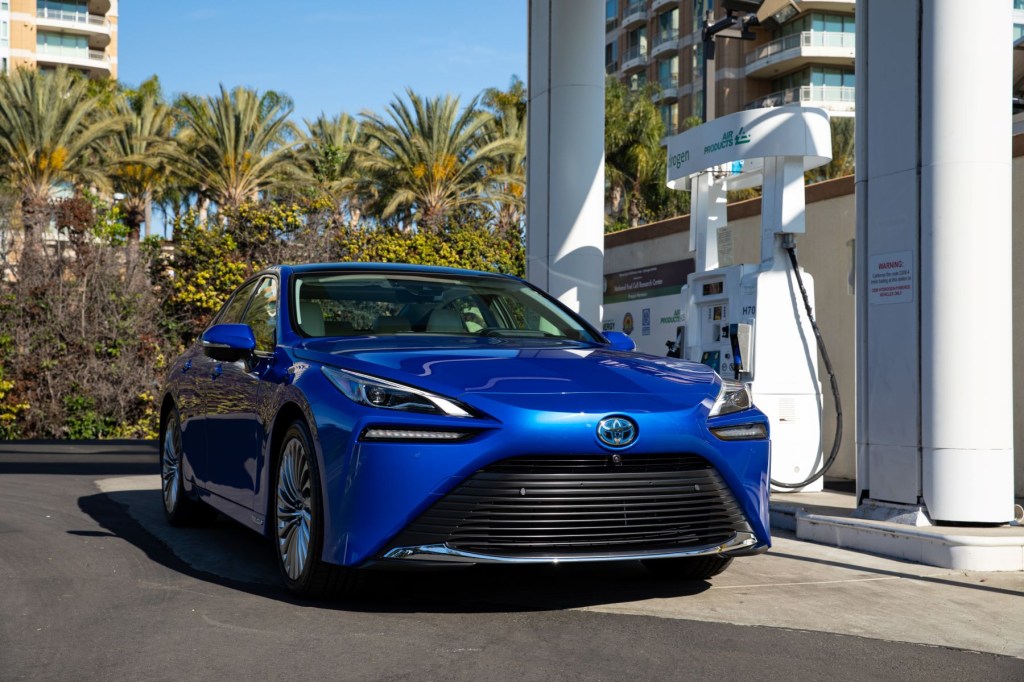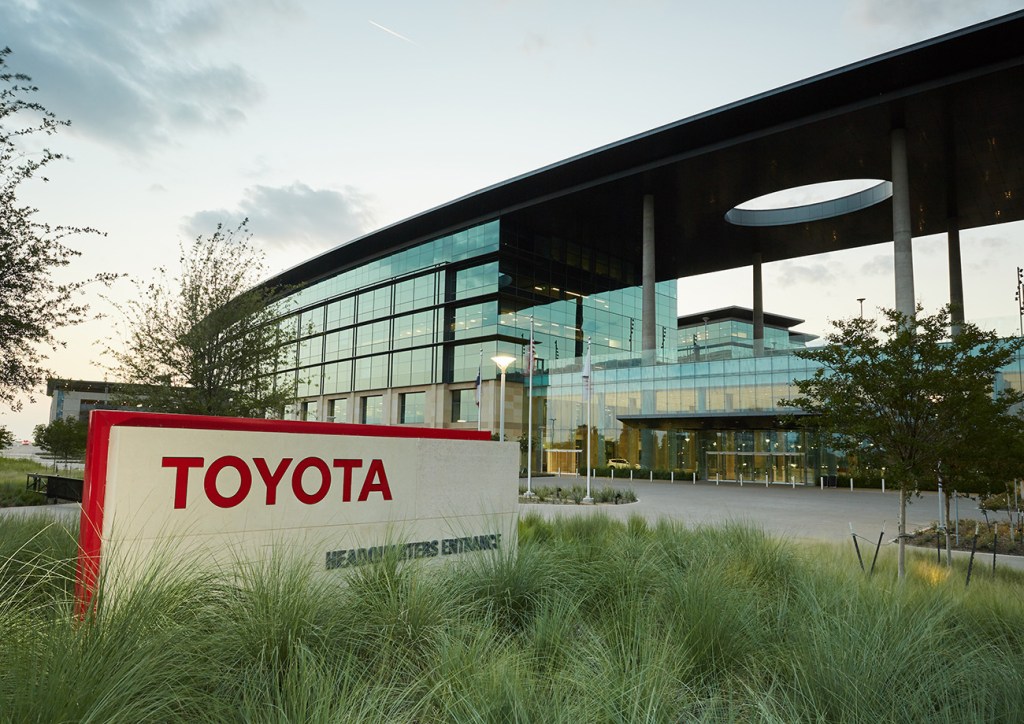
Toyota Electric Vehicles Coming After $3.4 Billion Investment
Besides the Mirai, there are currently no other Toyota electric vehicles offered in the United States. In the current political climate, most automakers are looking to move away from internal combustion engines and offer nothing but 100% EVs by 2030. Considering that 2030 is less than a decade away, Toyota has some serious catching up to do if it wants to make that deadline.
Toyota will invest $3.4 billion on EV battery production in the U.S. by 2030

The Japanese automaker is prepared to spend staggering amounts of money to ensure that Toyota electric vehicles have an advantageous position in the EV marketplace. According to a Reuters report, Toyota announced that it will invest $3.4 billion in battery production and development in the United States by 2030.
Part of that investment includes Toyota partnering with its metal trading division, Toyota Tsusho, to build a battery manufacturing facility in the U.S. That plant will take up $1.29 billion of the planned investment funds and is targeted to begin production in 2025 and generate 1,750 new jobs.
“Toyota’s commitment to electrification is about achieving long-term sustainability for the environment, American jobs and consumers,” said Ted Ogawa, chief executive officer, Toyota Motor North America, in a statement. “This investment will help usher in more affordable electrified vehicles for U.S. consumers, significantly reduce carbon emissions, and importantly, create even more American jobs tied to the future of mobility.”
These plans are part of an even larger strategy that Toyota previously announced in which it would invest over $13 billion globally to develop batteries and an efficient supply chain for them. Toyota hopes that its plan will reduce the cost of EV batteries by 30%.
The automaker says that the new plant will first focus on producing batteries for hybrid vehicles but will eventually move to power cells for Toyota electric vehicles.
It will be a while before we see more Toyota electric vehicles

Toyota does have a plan in place and the resources to spend to produce more electric vehicles by 2030. However, in the meantime, the automaker has some catching up to do. Unlike Hyundai or Tesla, Toyota did not get through the global chip shortage unscathed. The behemoth automaker was forced to cut its production forecasts due to interruptions in the supply chain for critical components.
The brand has only recently moved to regain some of the production it previously lost by urging some of its suppliers to push out as many components as possible. Toyota believes that it can recover about a third of the production it lost during the worst weeks of the global chip shortage.
We speculate that Toyota will be focusing on getting back to usual production numbers before more significant steps are taken to break ground on a U.S. battery development plant.
Toyota is fighting to be included in the new EV tax credit legislation

Regaining production is not the only battle Toyota has to worry about as it looks to produce more electric vehicles. Recently, new legislation was introduced to Congress that would increase EV tax credits by an additional $4,500 and max out at a possible $12,500.
The only issue is the legislation says that only electric vehicles produced by union autoworkers at unionized production plants will be eligible for the increased tax credits. Toyota is one of the automakers that does not utilize union workers. If the legislation passes as it is currently written, customers will have a huge incentive to buy EVs from Ford, GM, and Stellantis, all of which use union labor to build vehicles.
Toyota and some of its competitors, such as Nissan and Tesla, have written a letter to U.S. Speaker Nancy Pelosi urging her to push for a rewrite of the legislation that includes EVs built by non-union labor. Though, at this time, it is unclear if any Pelosi or anyone in the Biden administration will heed that request.
Perhaps Toyota will unionize, or maybe they will dangle the carrot of creating more jobs to get the U.S. government to see things differently.


